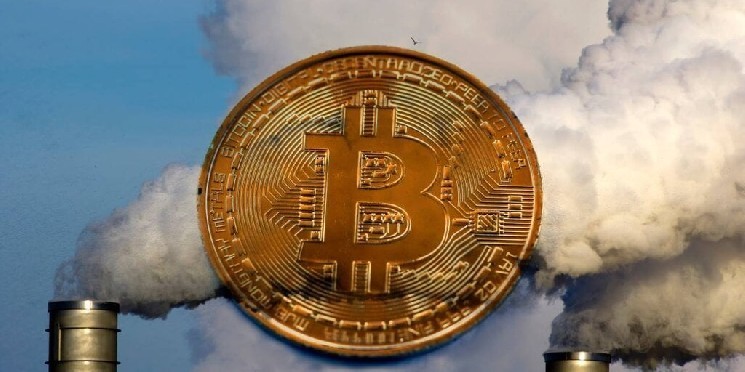Harvard Study Finds Bitcoin Mining Contributes to Interstate Air Pollution

A recent study has shown that Bitcoin mining contributes to the formation of hazardous pollutants in the atmosphere, with fine particles emitted by the facilities crossing state lines, affecting areas far from the mines themselves.
According to the researchers, authors of a groundbreaking study published in the journal Nature Communications , between August 2022 and July 2023, an estimated 1.9 million Americans were significantly exposed to these fine particles.
Affected regions include New York City, the Houston/Austin metropolitan area, northeast Texas and areas along the Illinois-Kentucky border.
“Interstate Pollution”
A research team led by Dr. Francesca Dominici from the Harvard T.H. Chan School of Public Health found that Bitcoin mining often leads to increased electricity production at fossil fuel power plants.
By collecting data from 34 of the largest Bitcoin miners in the US, the researchers claim that a Bitcoin miner in one state can cause a power plant in another state to burn more coal or gas, which leads to air pollution in the other state.
This creates an unpleasant situation for the victims.
For example, energy from a mine in North Carolina caused a coal-fired power plant in Kentucky to malfunction, which then affected air quality in Illinois, without local residents having immediate recourse to sue either the mine or the power plant.
However, because the affected areas are in a different state from where the pollutants originate, this situation creates a regulatory gap.
A number of “possible policy mechanisms” could help mitigate the “interstate pollution” problem, one of the authors, Dr. Scott Delaney, said in an email interview with Decrypt . “But these policies require action at the federal level.”
Dr. Delaney specifically proposes that the U.S. Environmental Protection Agency introduce a “Good Neighbor” rule to control PM2.5 (fine particulate matter) air pollution.
Such a rule would require wind-impacted states to more aggressively monitor power plant emissions. Programs to encourage responsible siting of mining operations and data centers could also be initiated to reduce negative health impacts, Delaney suggested.
Crypto and more
The results of the study are relevant not only for cryptocurrencies.
Last month, Decrypt reported a decline in revenue among publicly traded Bitcoin mining companies.
This trend has prompted some miners to switch from cryptocurrency to artificial intelligence.
“Bitcoin mining and AI infrastructure require large data centers, and much of the hardware used for bitcoin mining can be repurposed for other purposes,” Delaney explained.
The study was conducted against the backdrop of increased support for the cryptocurrency industry from US President Donald Trump.
During the election campaign for his second term, Trump met with Bitcoin miners and expressed his desire for all Bitcoins to be produced in America.
Earlier this month, Trump signed an executive order to increase coal production in the country.
The researchers who conducted the study warned that further expansion of Bitcoin mining and the development of artificial intelligence infrastructure could have serious environmental consequences.
Researchers told Decrypt that if the US pursues policies that allow coal plants to remain running after scheduled closures, “the pollution they produce will become even more toxic.”
Source: cryptonews.net



